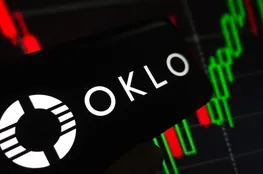Warren Buffett has long been recognized as the seasoned CEO of Berkshire Hathaway, presiding over a massive $295 billion portfolio comprised of 45 publicly traded stocks and securities. Beyond this, his conglomerate owns a variety of businesses outright, bolstered by a $325 billion cash reserve poised for optimal investment opportunities when deemed worthwhile by Buffett and his team. Since assuming leadership in 1965, Buffett's astute investment choices have propelled Berkshire Hathaway's stock to achieve a compound annual return of 19.8% by 2023, significantly outperforming the S&P 500 index's average annual return of 10.2% over the same period. Despite his success, Buffett is keenly aware that the average retail investor may find it challenging to replicate his achievements, given his professional expertise and full-time dedication to investing.
As a result, he frequently advocates that small investors consider exchange-traded index funds (ETFs) as a pragmatic investment choice. Berkshire Hathaway currently holds stakes in two prominent ETFs: The Vanguard S&P 500 ETF and the SPDR S&P 500 ETF Trust. These funds track the S&P 500 index's performance, providing a diversified investment option that captures the essence of the U.S. stock market. The Vanguard S&P 500 ETF stands out as a particularly attractive choice due to its low cost, with an expense ratio of just 0.03%, which is among the lowest in the world. Such low costs can significantly enhance investors' long-term returns compared to higher-cost alternatives, like the SPDR S&P 500 ETF Trust, which has an expense ratio of 0.09%.
Moreover, a top Wall Street analyst has bolstered the case for the Vanguard ETF, forecasting a phenomenal 150% growth potential by 2030. Integral to its appeal, the S&P 500 index, mirrored by the Vanguard ETF, comprises 500 of the largest U.S. companies across all economic sectors, providing broad diversification. The index imposes stringent criteria for companies to gain initial entry, ensuring only those with market capitalizations of at least $18 billion and consecutive profits on a trailing 12-month basis are included. The index is reviewed quarterly, maintaining its high standards. Technology giants like Nvidia, Apple, and Microsoft are among the top holdings within the Vanguard S&P 500 ETF, reflecting the tech sector's significant 31.7% index weighting.
These companies are pioneering the burgeoning field of artificial intelligence (AI), with Apple's advancements in AI-enhanced consumer products, Microsoft's AI integrations in productivity software and cloud services, and Nvidia's state-of-the-art GPUs powering AI development. However, the S&P 500's wide diversification means the ETF isn't exclusively tech-focused. It includes other substantial holdings, such as Berkshire Hathaway, electric vehicle leader Tesla, pharmaceutical giant Eli Lilly, JPMorgan Chase, and Costco Wholesale. While Wall Street predictions should be approached with caution, Tom Lee of Fundstrat Global Advisors has a notable track record of accuracy, having correctly anticipated significant index movements over recent years.
He projects that the S&P 500 will reach 15,000 by 2030, suggesting the same potential growth for the Vanguard S&P 500 ETF. Lee attributes this optimism to demographic trends as millennials and Gen Zers enter their prime earning years, alongside AI's transformative economic contributions. Despite these optimistic forecasts, investors should remain mindful of potential setbacks, such as economic recessions or unanticipated shocks like financial crises or pandemics. Additionally, if AI doesn't meet high expectations, it could dampen the performance of major stocks. Nevertheless, historical patterns indicate the S&P 500's potential to reach such milestones, affirming Buffett's advice to invest in the Vanguard S&P 500 ETF as a strategic choice.
























